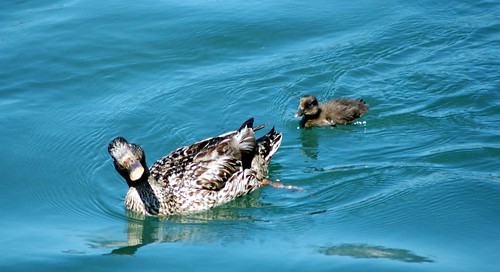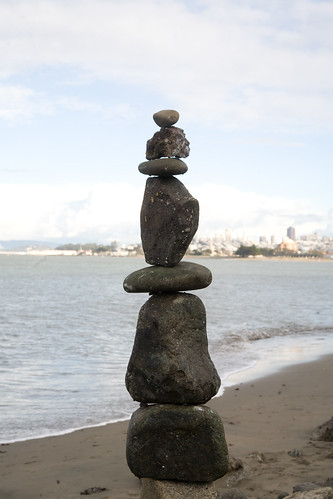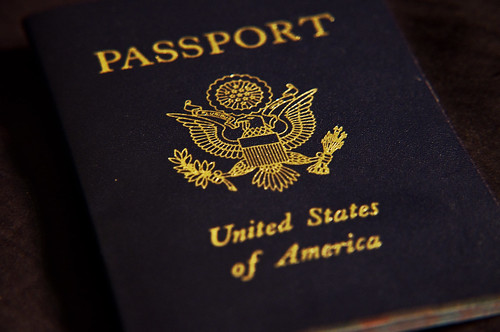Earlier this week, in a discussion on pastors who endorse spanking from the pulpit, I was given permission to share this letter. I am not sharing the author's name, but this story is not unusual. I know that many people who support spanking will likely feel outraged and say that things like this are never their intent. I am sure that that is true. Unfortunately, regardless of the parent's motives, spanking can cause many problems. I am so grateful for M.C.'s courage in sharing with this pastor and in allowing me to share this here. There is a lot of secrecy and shame about some effects of spanking, and we need to shine light on it in order to bring healing to our brothers and sisters in Christ. Because of the sensitive nature of this post, comments will be heavily moderated.
*******
Dear Pastor ________
Last Sunday (February 24th) I was listening intently to the sermon you were giving on backsliding and distancing yourself from God. I was really into the message, and I felt like the message was speaking to me; and then all of a sudden something clicked off inside of me and I was no longer able to listen. It is highly ironic that one of the metaphors used in your sermon on becoming distant from God was precisely one of the many issues that has made me feel cynical towards my upbringing in the church, and has probably made me feel somewhat distant in my relationship with God. When this illustration was used in the sermon it was a complete distraction to me and I totally lost focus on the purpose of the message. The illustration I am referring to is the one where you said that God paddles backsliding believers in order to bring them back to himself; and also the comment that compared the role of the church on a backsliding believer’s life to that of an older sibling warning the younger to knock off their behavior or else they would experience a sore painful backside from the father’s paddling. When these illustrations were used I couldn’t help but stop listening, and if you will be patient in listening I will try to explain why.
When I was growing up in the shadow of the fundamentalist Baptist Church corporal punishment was generally accepted as God’s command for lovingly disciplining children. I remember many Sunday school teachers and Awana leaders instructing all of us young children on why it was loving and godly for our parents to hit us. I vividly remember one particular message given by an Awana leader who told us, “My father showed me his love with his belt and if your parents love you they will also show it with a belt.” At home this teaching was carried out in action from a young age. My brother and I were commonly spanked bare bottom with either our father’s leather belt, or his homemade wooden paddle. I can recollect my feelings during these times. I always felt terrified and my stomach would tie itself into knots. During the wait in the bedroom, my brother used to become so anxious that he would end up running to the bathroom and vomiting; and the pain was always unbearable. Sometimes the experience was even more horrible for me because I knew I didn’t mean to do anything wrong. Because of my Central Auditory Processing Disorder there were times where I would miss-communicate what I was trying to say, or information would get mixed up in the processing centers of my brain; when this happened I was often accused of lying and was paddled despite my futile attempts to explain that I really did not mean to lie. Equally horrible were the times I would be sitting in a room and would hear the loud smacks as the wooden paddle hit my brother who was screaming and crying in the adjacent room; my stomach would weave itself into knots knowing that I was helpless to save my brother from that pain and fear.
I do not believe that support for corporal punishment has any place in the church, and I refuse to show any support for ministries that support or teach that corporal punishment is acceptable and godly (ex. Focus on the family). It is absurd for me to imagine the Jesus who told us to turn the other cheek when our enemies hit us; the Jesus who told us to continually forgive those who sin against us; and the Jesus who stopped Pharisees from stoning people caught in sin would advocate whacking children with pieces of wood. I have researched this issue a lot and have found that there is little (if any) biblical support for hitting children as an act of discipline or punishment. Everyone always tries to cite proverbs as a defense for corporal punishment, but from my research it seems that those verses have been seriously misinterpreted and twisted over a long period of time. I do not see any reason to accept that Proverbs is a literal command or support for whipping children with rod’s; if anything, the message of those verses in proverbs is that if you refuse to take the time to correct and teach your children then you really do hate them (I do not believe this correction and teaching has anything to do with hitting children).
I also find it funny when Christian writers, or Christian organizations like Focus on the Family, try to instruct people in the biblical/non-abusive approach towards spanking. I find it funny because there is nothing in the bible that gives parents instructions on how to hit their children in a godly manner (despite the countless Christian parenting books that try to describe the biblical step- by- step process for hitting your children in love).
I also resent when people try to tell me that the only reason I was negatively affected by corporal punishment is their claim that my father’s corporal punishment was abusive and unbiblical. I resent this because it was not true during the time period and the church culture in which I grew up. Many parents from my generation, and from the church culture I grew up in, whacked their children’s bare backsides with belts and wooden paddles, and it was not considered abusive. Furthermore every Christian writer, and every Christian ministry that tries to defend corporal punishment, has a different standard of abuse.
Some Christians say that if you chose to spank, then you should give only two swats on a fully clothed bottom….however, other Christian “authorities” recommend 5 swats…and others 2 swat for each year of the child’s age…Some of these Christian ministries say that it is abusive to spank with an object. Others agree with James Dobson and Roy Lessin and say the use of a neutral object is best…Some of these various authors say that the child should be fully clothed during the spanking, while others say that a child’s clothing should be removed so they feel the full extent of the pain, and also so that the parent can monitor the extent of the damage on the skin…Some of these people say that a spanking should not be painful, and that the child should just feel a firm impact with-out any painful sting (in this case the writers suggest that the purpose of spanking is to just get the child’s full attention, it is not to cause pain). Other Christians say that a spanking should definitely be a painful experience for the child….Some Christians say that if there are any marks or redness on the skin from spanking, then it’s abuse…others say red marks are OK…some Christian ministers say redness is OK, as long as it only lasts for a few minutes…while others say it is perfectly fine for the redness to last for a long time…Some Christian writers like Roy Lessin even suggest that light bruising is Ok and doesn’t qualify as abuse.
No one in these examples has a definite unified view of what a so-called “non-abusive? Spanking is. It becomes a ridiculous question of “how many times can I hit my kid, and how hard can I hit them?? Even the issue of marks on the skin becomes a somewhat relative issue. Some kids bruise easily, and even the “mildest? swat may leave a slight bruise…some don’t bruise easily at all; so the parent could whack the child pretty hard, cause pretty extensive pain, and yet still not be culpable of abuse because no bruise was left. How much pain is too much pain? How do you really know if you have crossed the threshold of “appropriate” disciplinary pain, especially if, as Roy Lessin suggests in his infamous book “Spanking, When, Why, and How”, you cannot even trust the child’s crying because it is manipulative? None of these views on corporal punishment has any way to answer the question of when spanking is abuse. Each commentator has their own view as to what constitutes abuse, and the line between abuse and discipline is hazy and ineffective. And since there are a number of negative risks associated with corporal punishment, why would anyone take the chance of harming their child…there are plenty of other effective alternatives. I also can’t help but think that if spanking was mandated by God, then why wouldn’t he leave any commentary or examples of how to “correctly” do it in the bible?
I think the whole argument I just described (the difference between spanking and abuse) completely misses the point; you are not supposed to hit other people Period, including children. Husbands are not allowed to hit wives if they have a disagreement; bosses are not allowed to hit employees if they don’t do things correctly; in fact everyone in the United States is protected from being hit except children. A better definition of abuse is to say that people are not supposed to hit each other, and therefore any type of hitting is an act of mistreatment and abuse. This is the safest position to hold. God did not intend for us to hit each other, and therefore ALL hitting should be considered a form of mistreatment or abuse.
I know a lot about the negative effects resulting from spanking. The physical and emotional consequences I think are pretty clear, but there is one other negative effect that few people feel comfortable talking about, and I am only going to discuss it with the trust that you will not tell anyone that I am one of people dealing with it (Only a few people at our church like Katy know about this). I am talking about the sexual side effects associated with corporal punishment.
Ever since I was a young child I can remember having sexual thoughts related to corporal punishment. The asexual child is a common myth in our society, but it is simply not true. Children are fully capable of experiencing sexual feelings and can even experience sexual arousal. When I was a child I used to experience sexual feelings whenever I read a scene of corporal punishment in a children’s book; or when I saw a scene of corporal punishment in a film; I used to think about being spanked when I would play with myself as a child, and as an adolescent masturbation was always accompanied by thoughts about spanking. I never really questioned any of this until I started college. I realized that it seemed really strange that my sexual thoughts would revolve around something that was so painful and frightening as a child; I mean, sex is supposed to be focused on something beautiful, not on being inflicted with pain. I did some research and I found some answers to explain this. I discovered that there was both a biological and psychological component to the sexualization of corporal punishment; and I also discovered that there were many other people who suffered sexual side effects from childhood corporal punishment.
The biological factor revolves around the fact that the buttocks is an erogenous, or sexual, zone of the human body. The buttocks are in close proximity to the sex organs, and the nerves and blood vessels in the buttocks are also connected to the male and female genitalia. Therefore, striking a child's bottom as a form of punishment can stimulate the nerves connected to the genitalia causing sexual arousal. When a child's bottom is hit it also causes blood to rush to the blood vessels of the buttocks (causing redness), and since those blood vessels of the buttocks are connected to a person's genitalia, the blood can also rush to the sex organs which of course causes sexual arousal.
During the spanking, the child may not even realize that the sexual arousal is occurring because of the intense physical pain and anxiety they are experiencing; however, the connection between the spanking and the sexual arousal can be stored in the subconscious and later manifest itself in sexual fantasies where the child imagines being spanked, hit, or humiliated in order to reach a state of sexual arousal.
In addition to the biological factors there are also psychological factors that solidify the connection. Since the buttocks is a sexual and private part of the body a child becomes confused when a parent is able to touch this area of their body in a violent manner. There is a confusing message that occurs when a child is told by the parents and the church that their parents spank them because they love them. The child may begin to think that the people who love you hit you; they may even associate the action of spanking/pain as an expression of love. Therefore, a sexuality may develop that is focused on spanking as an action of love. The sexual overtones of corporal punishment may become even stronger because of the fact that many parents remove a child’s pants and underpants when spanking. There are many people who have stories similar to mine; spanking can cause distortions in a child’s developing sexuality, and for that and many other reasons it should not be supported.
You may think I am crazy, but I assure you that I am not. I am 100% serious. I always tell people that if you don’t believe that there is a connection between corporal punishment and sexuality then they should do a search on the internet. I tell people who doubt the connection to type in the word spanking on their internet search engine and to count how many pornographic sites related to spanking show up on their search results. I also tell people that I can give them internet links to sites where people describe their own personal childhood experiences with corporal punishment and their currant struggles with sexuality. I also have links and articles and books that talk about the connection between corporal punishment and sexuality. Both sociologist and psychologist have studied the connections between the two, and I not only agree with the findings…I know from experience that there is a connection.
So, when the illustration about paddling was used that Sunday something clicked off inside me and I couldn’t listen. You were talking about people being distant from God, and ironically it is that issue of corporal punishment that has created a lot of baggage in my relationship to God and the Church. I was told by my church that spanking was loving; I was told that spanking was endorsed by God and that all Godly and loving parents spank their kids; so imagine how it feels to me when I know that spanking distorted my sexuality and contributed the anxiety issues I deal with, and yet I hear churches and ministers and authors all saying that it is loving and godly. I cannot embrace that in any way. How am I supposed to feel close to God when so many people in churches defend something that has been harmful to me and for many other people? When that metaphor was used, all I could think of was how frightening and painful it was to be hit with that paddle, or strapped with that belt when I was growing up…and all the emotional and sexual baggage that went with it.
Thanks for listening to my concerns. I was debating on whether I should write this, but I felt I had to because of the way this issue affects me. I have appreciated your ministry at the church and have never raised any concerns about your ministry before; but I had to voice my concern about this. It just frustrates me so much that many churches still accept the myth that corporal punishment is god-mandated, loving, and non-harmful.
M. C.













